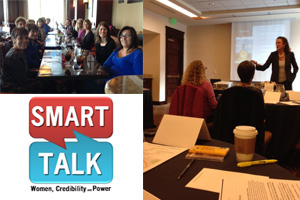Millennials:
Have They Received a Bad Rap?
Millennials are the 80 million Americans born roughly between 1980 and 2000. By the year 2025, they’ll make up three out of every four workers worldwide. I have two of them at home; one is thirty and the other twenty-seven. I am reminded any time I read something critical about Millennials, that Boomers raised them. So if we have any complaints, we can begin with Boomer parenting (notorious for being "helicopter parents" and advocating the development of self-esteem). Many of us don't have the generational intelligence to deal with Millennials.
On the heels of Time magazine’s controversial recent cover story by Joel Stein, which referred to Millennials as lazy, entitled, and selfish, it’s important to consider how that characterization, whether true or unfairly conjured from stereotypes, plays into workplace dynamics.
Here are some of the complaints that manifest themselves in the workplace:
-
Millennials received so many participation trophies growing up that 40 percent of them think they should be promoted every two years – regardless of performance. This is one of the top complaints I receive from HR and managers. They resent what they perceive as a sense of entitlement, and that just showing up for work, regardless of performance, should guarantee a fast move up the ladder.
-
Welcome to my world! Another complaint about Millennials is they are self-centered and over confident. I hear this refrain about Millennials often, "It's all about me." My son was about 25 when he was complaining about his own age group and he summed it up as "Welcome to my world."
-
The operating norms are very different for Boomers and Millennials and this translates to questions like, "Do I have to come to work every day?" or "Do you have drug testing." One Millennial asked an interviewer if his mother could call about his benefits package.
Guidelines for dealing with Millennials will be offered in my December newsletter. |
|
|
Audrey Nelson PhD. is an international trainer, key-note speaker, consultant and author who works with organizations to increase their productivity and profitability through winning communication strategies.
You can reach Audrey at audrey@audreynelson.com
or at 303.448.1800 O - 303-448-1801 F - 303.448.1802 C
www.audreynelson.com |
|
Did
you miss one of the
Smart Talk Columns? |
Browse
the archives of Audrey’s
2006 to date- Smart Talk Columns on her web! Simply visit www.audreynelson.com and click on “Newsletters.”
|
|
|
Have you checked out Audrey’s blog?


The Fight for Face Time:
Is it a Gender Thing?
Click for article
| Don't miss this! |

Audrey presenting in her Smart Talk Seminar.
|
 Audrey will be the new co-chair for the Employee Relations and Diversity Professional Development Group for Mile High Society of Human Resource Management. Audrey will be the new co-chair for the Employee Relations and Diversity Professional Development Group for Mile High Society of Human Resource Management.
|
|
|
|
|
Feedback from Smart Talk: Women, Credibility and Power
Audrey,
Great seminar – thank you! What I liked best was the blend of serious matter of fact and humor. Also, videos and self assessments.
Linda M. Murphy, PHR
HR, Director
FCC Services
What an excellent conference with real takeaways! I feel like it helped add to my communication toolkit for a variety of situations. Everyone in a professional setting – men and women alike should attend to better understand how to communicate and avoid unintended consequences of certain verbal and nonverbal communication styles. I enjoyed the session from beginning to end.
Stephanie Barton
Director of Marketing and Communications
FCC Services
I want to thank you for the realization of the juxtaposition between my androgyny score and how I actually show up in communication (Code Switching Quotient). That was profound for me.
I look forward to future seminars.
All the best,
R. Nick
White Wave -
Sr. Manager |
|
The Gender Communication Handbook –
Conquering Conversational Collisions Between Men and Women
|
 |
The Gender Communication Handbook is for anyone who works with the opposite sex. If you are a part of a management team, in HR, or develop corporate training, this book is a comprehensive guide filled with smart advice, extensive research, self-assessments, and compelling true-to-life case studies. More |
|
Code Switching –
How to Talk so Men will Listen |
 |
Code Switching is a hands-on tool for everyday use at the office. It is a practical resource with how-to steps to help businesswomen conquer the communication nuances between men and women in the workplace. This book explores the gender impact on business talk. - More |
|
You Don’t Say – Navigating Nonverbal Communication Between the Sexes |
 |
You Don't Say is the first book to explore the misunderstandings that often arise between the sexes due to nonverbal communication — and to show readers how to say what they mean and get what they want. More than words, it's nonverbal cues that have the power to improve — or impair — our interactions with the opposite sex at home and in the workplace. |
|
|











 Audrey will be the new co-chair for the Employee Relations and Diversity Professional Development Group for Mile High Society of Human Resource Management.
Audrey will be the new co-chair for the Employee Relations and Diversity Professional Development Group for Mile High Society of Human Resource Management.
